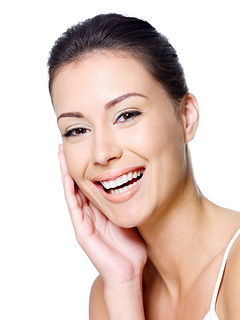It's been years since my last appointment; what should I expect?
June 17th, 2015

Feeling apprehensive or guilty for not visiting a dentist in over a year is common, but coming back to receive dental care is easier than you may think. Our dental team at Smiles By Beck provides caring, non-judgmental, personalized service, and knowing this you can truly feel at ease making your first appointment back.
During your first appointment back, we will focus on three prominent dental issues including gum disease, cavities, and wear and tear by utilizing a full mouth series of X-rays, a hygiene appointment, and a comprehensive exam.
The full mouth series of X-rays are taken every three to five years, or as needed. A full mouth series may be a panoramic X-ray and bitewings (a set of four that checks for cavities) or a set of X-rays that views the entire anatomy of every tooth. The set of X-rays will depend on your individual needs.
Your hygiene appointment will begin with a review of your medical history, personal concerns and questions, and an evaluation checking for any infection. After any necessary diagnoses are made, the appropriate level of cleaning is proposed and completed if time allows.
A comprehensive exam serves as a review of what the hygienist has already covered. Drs Marci, Glenn and Brian Beck will again review your medical history and dental concerns, and confirm any periodontal diagnosis. An evaluation of any decay, breakdown or broken fillings, or areas that are at risk for future problems will also be reviewed.
After the appointment, a team member at Smiles By Beck will review any recommended treatments, payment options, insurance coverage, and scheduling. The time spent at your first visit back is an important step in the right direction, and we are committed to making this visit as comfortable and easy as possible! Come see us in Tallahassee, FL.




 Website Powered by Sesame 24-7™
Website Powered by Sesame 24-7™